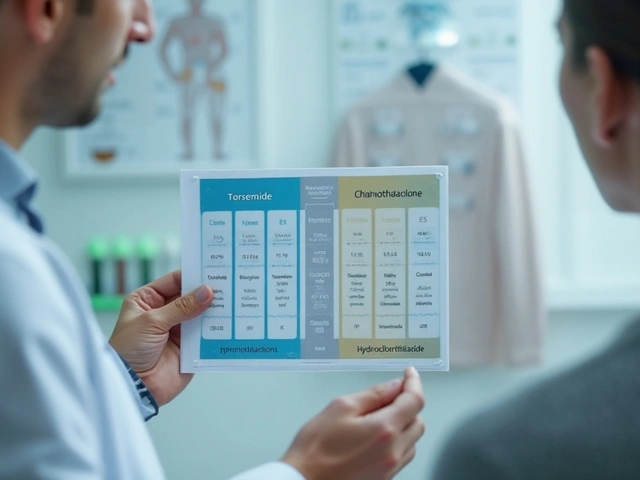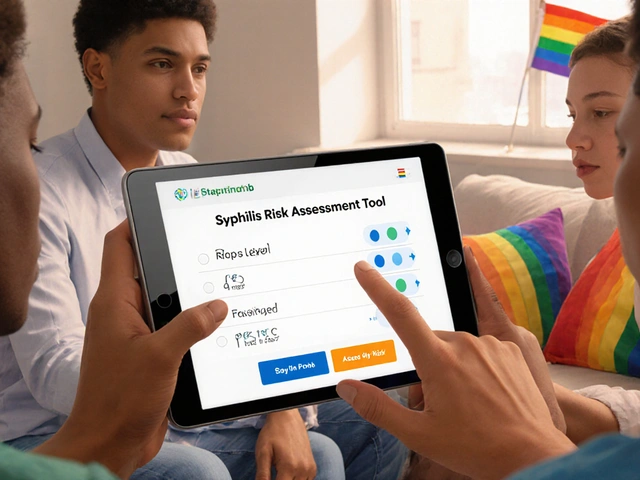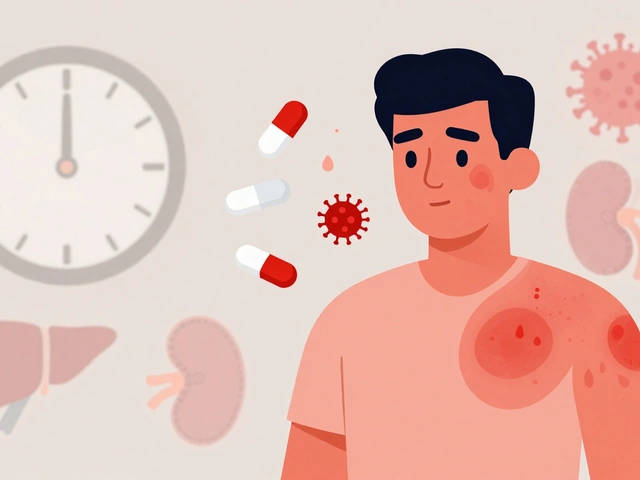Hyperthyroidism: Signs, Tests, Treatment — What to Do Next
An overactive thyroid can speed up your heart, make you lose weight, and leave you feeling wired and tired at the same time. If you’ve been jittery, sweating more, or have a fast pulse, this article tells you what to expect from the doctor, the key tests, and real treatment choices.
How doctors diagnose it
Start by describing your symptoms and any recent medicine changes. Your doctor will usually order blood tests first: a low TSH with high free T4 or T3 points to hyperthyroidism. If Graves’ disease is suspected, they'll test thyroid-stimulating immunoglobulins (TSI). For unclear cases, a radioactive iodine uptake scan or thyroid ultrasound can show how active the gland is.
One important thing: some drugs cause thyroid problems. Amiodarone (brand name Cordarone) and other iodine-rich medicines can trigger hyperthyroidism, so tell your clinician about every prescription and supplement you take.
Treatment options and what to expect
Treatment depends on cause, age, and how severe your symptoms are. Here are the main options:
- Antithyroid drugs: Methimazole and propylthiouracil (PTU) reduce hormone production. They work well for many people but usually need months of treatment and regular blood checks. PTU is preferred in the first trimester of pregnancy.
- Beta-blockers: These don’t fix thyroid levels but calm symptoms fast — they slow heart rate, reduce tremors, and ease anxiety while other treatments start to work.
- Radioactive iodine: Taken as a pill, it shrinks thyroid tissue and often cures hyperthyroidism. It may cause hypothyroidism later, which is easily treated with replacement hormone.
- Surgery (thyroidectomy): Used when medication and radioactive iodine aren’t suitable, or if there's a large goiter or suspicious nodule. Recovery is quick for most people, but you’ll need lifelong hormone checks afterward.
Watch for rare but serious side effects from antithyroid drugs — sudden fever, sore throat, or unexplained bruising could signal low white blood cells and need urgent care.
What you can do right now: get a primary care or endocrine appointment, bring a list of all medicines (including supplements), and ask specifically for TSH and free T4 tests. Avoid iodine supplements unless your doctor approves. If you have chest pain, fainting, very high fever, or a dangerously fast heartbeat, head to the emergency room — these can be signs of thyroid storm, a medical emergency.
Long term, most people do well once thyroid levels are controlled. If you have eye changes (bulging eyes, vision problems), mention this early — Graves’ eye disease has treatments that work better when started sooner. Keep a simple plan with your clinician: who checks your labs, how often to review meds, and clear steps if symptoms return. That keeps things stable and helps you feel like yourself again.

Thyroid Disorders and Arrhythmias: What You Need to Know
Thyroid problems can mess with your heartbeat in ways most people don't realize. This article breaks down why your thyroid matters for your heart's rhythm, what signs to watch for, and what you can do about it. You'll get practical tips, real-life examples, and some surprising facts. If you're dealing with heart palpitations or know someone with a thyroid issue, this is stuff you need to understand. No jargon, just clear info you can actually use.
View More




